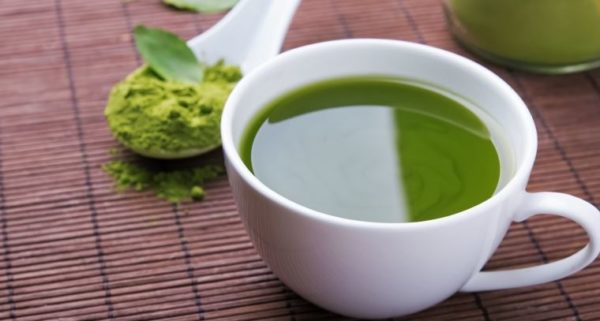Lifestyle
5 incredible health benefits of Matcha tea

Matcha has skyrocketed in popularity lately, with matcha shots, lattes, teas, and even desserts appearing everywhere from health stores to coffee shops.
Like green tea, matcha comes from the Camellia sinensis plant. However, it’s grown differently and has a unique nutrient profile.
Farmers grow matcha by covering their tea plants 20–30 days before harvest to avoid direct sunlight. This increases chlorophyll production, boosts the amino acid content, and gives the plant a darker green hue.
Once the tea leaves are harvested, the stems and veins are removed and the leaves are ground up into a fine powder known as matcha.
Matcha contains the nutrients from the entire tea leaf, which results in a greater amount of caffeine and antioxidants than typically found in green tea.
Studies of matcha and its components have unearthed a variety of benefits, showing that it can help protect the liver, promote heart health, and even aid in weight loss.
Here are 5 health benefits of matcha tea:
1. High in antioxidants
Matcha is rich in catechins, a class of plant compounds in tea that act as natural antioxidants.
Antioxidants help stabilize harmful free radicals, which are compounds that can damage cells and cause chronic disease.
When you add matcha powder to hot water to make tea, the tea contains all the nutrients from the entire leaf. It will tend to have more catechins and antioxidants than simply steeping green tea leaves in water.
2. May help protect the liver
The liver is vital to health and plays a central role in flushing out toxins, metabolizing drugs, and processing nutrients. Some studies have found that matcha may help protect the health of your liver.
One study gave diabetic rats matcha for 16 weeks and found that it helped prevent damage to both the kidneys and liver. Another study gave 80 people with nonalcoholic fatty liver disease either a placebo or 500 mg of green tea extract daily for 90 days.
After 12 weeks, green tea extract significantly reduced liver enzyme levels. Elevated levels of these enzymes are a marker of liver damage.
3. Boosts brain function
Some research shows that several of the components in matcha could help enhance brain function. One study in 23 people looked at how people performed on a series of tasks designed to measure brain performance.
Some participants consumed either matcha tea or a bar containing 4 grams of matcha, while the control group consumed a placebo tea or bar. The researchers found that matcha caused improvements in attention, reaction time, and memory, compared to the placebo.
Additionally, matcha contains a more concentrated amount of caffeine than green tea.
Multiple studies have linked caffeine consumption to improvements in brain function, citing faster reaction times, increased attention, and enhanced memory in the brain, which may help induce relaxation and decrease stress levels.
4. May help prevent cancer
Matcha is jam-packed with health-promoting compounds, including some that have been linked to cancer prevention in test tube and animal studies.
In one study, green tea extract decreased tumor size and slowed the growth of breast cancer cells in rats.
Matcha is especially high in epigallocatechin-3-gallate (EGCG), a type of catechin that has been shown to have powerful anti-cancer properties.
5. May promote heart health
Heart disease is the leading cause of death worldwide, accounting for an estimated one-third of all deaths in people over the age of 35.
Some studies have shown that drinking green tea, which has a similar nutrient profile to matcha, may help protect against heart disease. Green tea has been shown to reduce levels of total and “bad” LDL cholesterol, as well as triglycerides.
It may also help prevent the oxidation of LDL cholesterol, another factor that may protect against heart disease.










